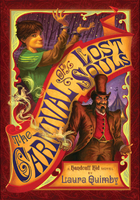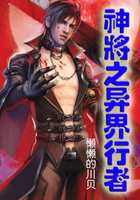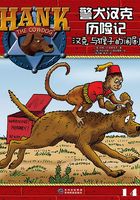To D. W.
Robert worked nearly an hour after quitting time at five. He had nothing to hurry home for, and by staying on at his desk he avoided the chaos of employees' cars that left the Langley Aeronautics parking lot between five and five-thirty. Jack Nielson was also working late, Robert noticed, and so was old Benson, who was usually the last. Robert turned off his fluorescent lamp.
"Wait for me," Jack said. His voice sounded hollow across the empty drafting room.
Robert got his coat from his locker.
They said good night to Benson and walked toward the long, glass-enclosed reception hall, where the elevators were.
"So. You got your space shoes," Robert said.
"Um-m." Jack looked down at his big feet.
"You didn't have them on at lunch, did you?"
"No, they were in my locker. You're not supposed to wear them more than a couple of hours a day at first."
They got into the automatic elevator.
"They look fine," Robert said.
Jack laughed. "They look awful, but boy, they're comfortable. I had something to ask you. Could you possibly lend me ten bucks till payday? Today happens to be-"
"Oh, sure." Robert reached for his wallet.
"It's Betty's and my wedding anniversary and we're going out to dinner, but could you come by for a drink with us? We're going to open a bottle of champagne."
Robert gave him the ten. "Wedding anniversaries-You and Betty ought to be by yourselves."
"Oh, come on. Just for a glass of champagne. I told Betty I'd try to get you to come over."
"No, thanks, Jack. You're sure that's all you need, if you're going out to dinner?"
"Absolutely, and I only need this for some flowers. Six would do it, but ten's easier to remember. I wouldn't need anything, except I paid the last installment on these shoes today. Seventy-five smackers, they better be comfortable. Come on over, Bob."
They were standing in the parking lot. Robert was not going with him, but he couldn't think of a good excuse. He looked at Jack's long, rather ugly face, topped by the crew-cut black hair that was already graying. "What anniversary is it?"
"The ninth."
Robert shook his head. "I'll go on home, Jack. Give Betty my best, will you?"
"What's the ninth got to do with it?" Jack called after him.
"Nothing! See you tomorrow!"
Robert got into his car and drove out before Jack. Jack and Betty had a modest, dull house in Langley, and they had a permanent financial drain in Jack's mother and Betty's father, both of whom were always getting sick, Jack said, so that whenever they thought they had a little money ahead for a vacation or an improvement on the house, either his mother or Betty's father was sure to need it. But they had a little girl five years old, and they were happy.
Night was falling quickly, with visible speed, like a black sea creeping over the earth. As Robert drove past the motels, the roadside hamburger stands on the edge of Langley, he felt a physical revulsion against entering the town and driving to his street. He pulled into a filling station and turned his car around and drove back the way he had come. It was only the dusk, he thought. He did not even like it in summer, when it was slower and more bearable. In winter, in the empty Pennsylvania landscape that he was not used to, it came with a frightening swiftness and depressed him. It was like sudden death. On Saturdays and Sundays, when he did not work, he pulled his shades down at four in the afternoon, put on his lights, and when he looked out the window again, long after six, the darkness had come, it was there, it was finished. Robert drove to a small town called Humbert Corners, about nine miles from Langley, and took a narrow macadam road out of it, into the country.
He wanted to see the girl again. Maybe for the last time, he thought. But he had thought that before, and no time before had been the last time. He wondered if the girl was why he had worked late today, when he had not needed to work late; if he had stayed late just to be sure it would be dark when he left the plant?
Robert left his car in a lane in the woods near the girl's house, and walked. When he reached her driveway, he walked slowly, kept going past the basketball goal at the end of the driveway, and entered the grassy field beyond.
The girl was in the kitchen again. Its two squares of light showed at the back of the house, and now and again her figure crossed one of the squares, but stayed mostly in the left square, where the table was. To Robert's view, the window was like the tiny focus of a camera. He did not always go closer to the house. He was very much afraid of being seen by her, of being hauled in by the police as a prowler or a Peeping Tom. But tonight was a very dark night. He moved closer to the house.
It was the fourth or fifth time he had come. The first time he had seen the girl was on a Saturday, when he had been rambling about the country in his car, a bright, sunlit Saturday in late September. She had been shaking out a small carpet on the front porch as he drove by, and he had seen her perhaps only for ten seconds, yet that image had struck him like a scene he knew, a picture or a person he already knew from somewhere. From the cardboard cartons on the front porch and the curtainless windows, he supposed she had just moved in. It was a two-story white house with brown shutters and brown trim, much in need of painting, and the lawn was overgrown and the white rail fence along the driveway collapsing and askew. The girl had light-brown hair and was rather tall. That was about all he had been able to tell about her from a distance of sixty feet or so. Whether she was pretty or not, he couldn't tell, and it hadn't mattered. What had mattered? Robert could not have put it in words. But the second and third times he had seen her, at two- or three-week intervals, he had realized what he liked, and that was the girl's placid temperament, her obvious affection for her rather ramshackle house, her contentment with her life. All this he could see through the kitchen window.
Some ten feet from the house, he stopped and stood to one side of the light cast by the window. He looked on either side and behind him. The only light around was straight behind him across the long field, perhaps a half mile away, a solitary light in the window of a farmhouse. In the kitchen, the girl was setting the table for two, which meant that probably her boy friend was coming for dinner. Robert had seen him twice, a tall fellow with wavy black hair. They had kissed each other once. He supposed they were in love, would marry, and he hoped the girl would be happy. Robert moved closer, sliding his feet so as not to step on a twig, and stood with one hand gripping the branch of a small tree.
Tonight the girl was frying chicken. There was a bottle of white wine on the table. She wore an apron to protect herself, but as Robert watched, she started and rubbed her wrist where some of the hot grease had popped on her. He could hear the little radio in the kitchen giving a news broadcast. The last time he had been here, the girl had started singing along with a tune on the radio. Her voice was neither good nor bad, just natural and true. She was about five feet seven, with largish bones, good-sized feet and hands, and she might have been anything from twenty to twenty-five. Her face was smooth and clear, she never seemed to frown, and her light-brown hair hung down to her shoulders and was softly waved. She held her hair back with two gold clips above her ears, and her hair was parted in the middle. Her mouth was wide and thin and usually had an expression of childlike seriousness about it, like her gray eyes. Her eyes were rather small. To Robert, she was all of a piece, like a properly made statue. If her eyes were too small, they went with the rest of her, and the over-all effect he thought beautiful.
Whenever Robert looked at her of an evening, for the first time in two or three weeks, he felt struck or smitten in a way that made his heart jump, then beat faster for a few seconds. One night about a month ago, she had seemed to look straight at him through the window, during which time Robert's heart had not beaten at all. He had looked straight back at her, not frightened, not trying to hide himself by being motionless, but facing in those few seconds the unpleasant realization that he was terrified when she looked at him, and facing the possibility that she-it-might just explode in the next minutes: she'd call the police, she'd get a good look at him, he'd be arrested as a prowler, and that would be the absurd end of that. Fortunately, she hadn't seen him, and her looking straight his way through the window had apparently been due to nothing but chance.
Her name was Thierolf-it was on the mailbox by the roadside-and that was all he knew about her, personally. Except that she drove a light-blue Volkswagen. It stood in the driveway, as there was no garage to the house. Robert had never made an attempt to follow her in the mornings to see where she worked. His pleasure in watching her, he realized, was very much connected with the house. He liked her domesticity, liked to see her take pleasure in putting up curtains and hanging pictures. He liked best to watch her pottering about in the kitchen, which was fortunate, as the kitchen had three windows and all the windows were somewhat shielded by trees that gave him concealment. There was also on the property a small tool house six feet high, plus the broken-down basketball goal at the end of the driveway, which had provided a screen for him once when her boy friend had come up the driveway with his headlights blazing.
Once Robert had heard her calling to him, "Greg! Greg!" when he was going out of the house. "I could use some butter, too! Gosh, what a memory I've got!" And Greg had gone off in his car to fetch the forgotten items.
Robert rested his head against his arm and took a last look at the girl. She had finished her work now, and was leaning against the counter by the stove, her ankles crossed, staring at the floor with a distant expression as if she were looking at something miles away. She held a white-and-blue dishcloth in her hands, which were relaxed, almost limp in front of her. Then abruptly she smiled and pushed herself from the counter, folded the towel, and hung it on one of the three red rods that swung out from the wall by the sink. Robert had seen her the evening she fixed the towel rack to the wall. Now the girl came directly to the window where Robert stood, and he had just time to step around the small tree.
He hated acting like a criminal, and-just then-he'd stepped on a damned twig! He heard a click at the window and knew what it was-one of her hair clips touching the pane-and he shut his eyes in shame for an instant. When he opened them, he saw the girl with her head turned sideways against the glass, looking the other way, toward the driveway. Robert glanced at the basketball rig, wondering if he should make a dash for it before she came out of the house. Then he heard the radio being turned up louder, and he smiled. She was afraid, he supposed, so she played the radio louder for company. An illogical and yet very logical and appealing thing to do. He was sorry he had given her that moment's uneasiness. And it hadn't been the first, he knew. He was a very clumsy prowler. Once his foot had hit an old two-gallon can at the side of her house, and the girl, alone and doing her nails in the living room, had jumped up and opened the front door cautiously, and had called, "Who's there? Is anybody there?" Then the door had shut and a bolt had slid. Then there was the last time, a windy evening, when a tree branch had scraped back and forth against the clapboards of the house, the girl had noticed it, come to the window, then decided to do nothing about it and had gone back to her television program. But the scraping had kept on, and at last Robert had seized the branch and bent it, with one final scrape of twigs down the side of the house. Then he had gone, leaving the branch bent but not broken. Suppose she'd seen the branch later and called her boy friend's attention to it?
The ignominy of being caught as a prowler was too unpleasant for him to try to imagine. Prowlers usually watched women undressing. They had other unsavory habits, Robert had heard. What he felt, what he had was like a terrible thirst that had to be quenched. He had to see her, had to watch her. Admitting that, he admitted also that he was willing to run the risk of being found out some evening. He'd lose his job. His nice landlady, Mrs. Rhoads of the Camelot Apartments, would be horrified and ask him to move at once. The fellows at the office-Well, except for Jack Nielson, Robert could easily imagine them saying to one another, "Didn't I always say there was something funny about that guy?…Never once played poker with us, did he?" The risk had to be run. Even if nobody ever understood that watching a girl go calmly about her household routine made him feel calm also, made him see that life for some people could have a purpose and a joy, and made him almost believe he might recover that purpose and joy himself. The girl was helping him.
Robert shuddered, remembering his state of mind last September, when he'd come to Pennsylvania. He'd not only been more depressed than ever before in his life, he had actually believed that the last bit of optimism, will, even sanity he possessed was running out of him like the last grains of sand in an hourglass. He had had to do everything by schedule, as if he were in his own one-man army: eat, look for a job, sleep, bathe and shave, then all over again by schedule, otherwise he'd have gone to pieces. His psychotherapist, Dr. Krimmler, in New York, would have approved, Robert supposed. They had had some conversations on the subject. Robert: "I have the definite feeling if everybody in the world didn't keep watching to see what everybody else did, we'd all go berserk. Left on their own, people wouldn't know how to live." Dr. Krimmler, solemnly and with conviction: "This regimentation you keep talking about isn't regimentation. It's the habits the human race has acquired over the centuries. We sleep by night and work by day. Three meals are better than one or seven. These habits make for mental health; you're right." But it wasn't quite satisfactory.
What's underneath, Robert wanted to know. Chaos? Nothingness? Evil? Pessimism and depression that just might be warrantable? Just plain death, a stopping, a void so frightening nobody cared to talk about it? He hadn't been very eloquent with Krimmler, after all, though it seemed all they'd done was talk and argue, and there had been very few silences. But then Krimmler was a psychotherapist and not an analyst. And, anyway, Krimmler's arguments had helped, because Robert had acted on his advice and lived according to the books, and he was sure it had helped even with those telephone calls from Nickie, who'd somehow tracked him down, maybe through the telephone company, maybe through one of their friends in New York to whom he'd given his number.
Robert, without a glance around him, moved from the shelter of the little tree, around the rectangle of light thrown from the window, toward the driveway. Just then a pair of headlights came slowly from the right along the road. Robert reached the basketball goal in two leaps and was behind it by the time the car turned into the driveway. Its headlights flowed beyond Robert on either side of the six-foot-wide shelter, and remembering the chinks in the old wood planks, he felt exposed, as if his figure made a dark silhouette against the board.
The headlights went out, the car door opened, then the house door.
"Hi-i, Greg!" the girl called.
"Hi, honey. Sorry I'm late. Brought you a plant."
"Oh-h, thank you. It's gorgeous, Greg!"
Their voices stopped, shut off by the closing door.
Robert sighed, unwilling to leave immediately, though now was his safest time to leave, when they were fussing around the plant. He wanted a cigarette. He was also thoroughly chilled. Then he heard a window being raised.
"Where? Out here?" asked Greg.
"Right here, I guess. I didn't see anything."
"Well, tonight's a good night for it," Greg said cheerily. "Nice and black. Maybe something'll happen."
"Not if you scare whoever it is away," said the girl, laughing, talking just as loudly as the man.
They didn't want to find anybody, Robert thought. Who would? The man's shoes clumped on the side porch. Greg was making a tour of the house. Robert was relieved to see that he had no flashlight. But he still might circle the basketball board. The girl was looking out of the window, which was open about ten inches. Greg returned from his circle of the house and entered by the kitchen door. The window was put down, then raised by Greg, a little less high than before, then Greg turned away. Robert walked from the basketball goal toward the house, toward the open window. He walked almost arrogantly, as if to prove to himself he had not been intimidated by having to take shelter for a few minutes. He stood exactly where he had stood before, on the other side of the tree and about three feet from the window. Bravado, he thought. Sheer bravado and foolhardiness.
"…the police," Greg was saying in a bored tone. "But let me have a look around first. I'll sleep in the living room, honey, because it's easier to run out than if I'm upstairs. I'll sleep in my pants and shoes, and if I catch anybody-" Grimacing, he brought his big fists up in front of his face.
"Want a nice piece of firewood as a bludgeon or something?" the girl asked in her soft voice, smiling, and it was as if the violence of his words had not penetrated her at all. Still, she was the sort of girl who would be smiling and casual when she was worried, Robert felt, and he liked that. She never looked nervous. He loved that. She said something else he couldn't catch, but he was sure she was going into the living room to show Greg the piece of wood she meant. She had a black coal hod by the fireplace full of wood and kindling.
Greg's laughter came from the living room, loud and bold.
Robert shrugged, smiling. Then he opened his overcoat, pushed his hands into his trouser pockets and walked with his head up away from the house and down the driveway.
The girl lived on the Conarack Road, which led, after six straight but hilly miles, into Humbert Corners, where Robert supposed the girl worked. Robert went through Humbert Corners on the way to Langley, where he lived, a town very much bigger, on the Delaware River. Langley was known as a shopping center, the home of the largest used-car dealer in the district-"Red Redding's Used Car Riots"-and also of Langley Aeronautics, which made parts for private planes and helicopters. Robert had been working there as an industrial engineer since the end of September. It was not a very interesting job, but it paid quite well, and Langley Aeronautics had been glad to get him, because he had come from a prestigious job in New York, with a firm that redesigned toasters, electric irons, radios, tape recorders, and nearly every gadget and appliance in the American home. Robert had brought an assignment with him from New York, the completion of a set of two-hundred-and-fifty-odd detailed drawings of insects and spiders, which a young man in France had begun for a Professor Gumbolowski. Robert's friends the Campbells, Peter and Edna, had introduced him to the professor in New York and had insisted that Robert bring over his drawings of irises the evening he met him. The professor had brought some of the drawings for his book, for which he already had a contract with an American publisher. The young Frenchman who had started the drawings, and more than half finished them, had died. This in itself was enough to make Robert decline the assignment-not that he was superstitious, but the situation was vaguely depressing and he had had enough depression. He was also not enamored of insects and spiders. But the professor was enthralled by his iris blossoms, which Robert had drawn on a whim from flowers in his and Nickie's apartment, and was sure he could complete the Frenchman's drawings in the style in which they had been begun. Before the evening was over, Robert had accepted the assignment. It was certainly different from anything he had ever done before, and he was trying to create for himself a "different" life. He had separated from Nickie and was living in a hotel in New York, he was about to quit his job, and he was trying to choose a city to go and live in. The insect book might lead to other such assignments; he might like it very much or he might detest it, but at least he would find out. So he had come to Rittersville, Pennsylvania, a larger town than Langley, stayed for ten days and found nothing in the way of a job, and then he had come to Langley to investigate Langley Aeronautics. The town was dull, but he was not sorry he had moved from New York. Even though one had to take one's old self along wherever one went, a change of scene was that much change, and it helped. He was to get eight hundred dollars when he completed the drawings, and he had until the end of February to finish them. Robert set himself four drawings per week. He drew from the professor's detailed but rough sketches and from enlarged photographs the professor had given him. Robert found that he enjoyed the work, and it helped to pass the long weekends.
Robert entered Langley from the east and drove past "Red Redding's Used Car Riots." Here were solid square blocks of hardtops and convertibles, illuminated in a ghostly way by street lights set in narrow paved lanes that ran among them. The cars looked like a vast army of dead soldiers in armor, and of what battles, Robert wondered, could each car tell? Of a crash that had been repaired, but the owner killed? Of a family man gone broke, so the car had to be sold?
The Camelot Apartments, where Robert lived, was a four-story structure on the west side of Langley, only a mile from the plant where he worked. Its lobby was lighted by two table lamps that shone through philodendron boxes. A switchboard in the corner had been abandoned and never removed: Mrs. Rhoads had told him that she thought her "people," after all, preferred private telephone lines, even if they couldn't get messages taken for them. Mrs. Rhoads lived on the ground floor right, and she was usually in the lobby or her front sitting room, whose door was always open, when anyone went in or out. She was in the lobby when Robert came in, and she was pouring water from a lacquered-brass watering pot into a philodendron box.
"Good evening, Mr. Forester. And how are you this evening?" she asked.
"Very well, thank you," Robert said, smiling. "And you?"
"Good enough. Working late tonight?"
"No, just driving around. I like to take a look at the countryside."
Then she asked him if he was getting enough heat in a certain one of his radiators, and Robert assured her that he was, though he hadn't noticed anything about the radiator. Then he went up the stairs. There were six or eight apartments in the building, and there was no elevator. Robert's apartment was on the top floor. He had not troubled to get acquainted with any of the other people-a couple of young bachelors, a girl in her twenties, a middle-aged widow who went to work very early-but he nodded and spoke whenever he encountered anyone. One of the young men, Tom Shive, had asked him to go bowling once, and Robert had gone. Mrs. Rhoads had the curiosity of the classic concierge as to who came and went, Robert felt, but she was good-natured, and he actually liked to feel there was someone in the house who cared, or who at least formed some opinion about his being alone or with someone, and whether he came in at five or seven-thirty P.M. or one in the morning. For about the same amount of money, ninety dollars per month, Robert might have found a medium-sized house to rent somewhere in the environs of Langley, but he had not wanted to be alone. Even the mediocre furniture of his two rooms was a comfort somehow: other people had lived here before him, had managed not to set the sofa on fire, had done no more damage than burning a cigarette streak in the bureau top, had paced the same dark-green carpet, and perhaps taken the trouble to notice, Wednesdays and Saturdays, that it had been vacuumed. Other people had lived here before him and gone on somewhere else, to lead perfectly ordinary and perhaps happier lives. He had a month-to-month arrangement with Mrs. Rhoads. He would not want to stay here more than a month or two more, he thought. Either he would take a house in the country or move to Philadelphia, where Langley Aeronautics had their main plant and did their assembling. He had six thousand in the bank, and his expenses were less here than in New York. He hadn't yet received the bill for the divorce, but Nickie was handling that through her lawyers in New York. She was getting married again and had not wanted any alimony from him.
Robert turned on the electric oven in his kitchenette, looked over the directions on a couple of packages of frozen food, then opened them and slid them into the oven without bothering with the preheating. He looked at his watch, then settled himself in his armchair with a pocket book on American trees. He read about "The Winged and Slippery Elms." The flat, factual prose was refreshing.
The inner bark of Slippery Elm twigs was formerly chewed for relief of throat ailments. The twigs are hairy but not corky.…Coarse, hard and heavy, it makes fence posts.
He turned the pages with pleasure, and read on until a smell of scorching food made him jump up from his chair.















